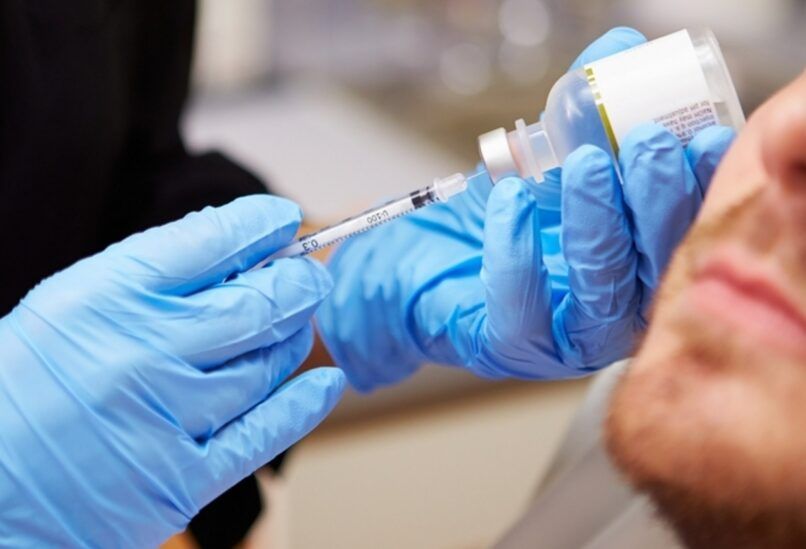
So much history has been made in 2022, at times it has felt hard to keep up. Throughout the twists and turns, we have been steadfastly working away to bring our trademark independent, informed and authoritative contributions to live debates to help put ethics at the centre of decision making in health and life sciences.
Impact comes in various shapes and sizes – sometimes it is about speaking out just at the right moment, sometimes bringing about meaningful change requires persistence and dedication. This dual feat of timeliness and durability is something we are always striving for in our work, and in sharing with you some of our biggest successes of 2022 it is noteworthy that they span across both our recent work and some that are a result of years of dedicated effort. As ever, I am very grateful to everyone who has contributed to our work and has helped us to bring about positive change.

1. Care of critically ill children
Where else can I start but with last week’s announcement, which has been months, if not years in the making. We have been appointed to conduct an independent review of the disagreements that can arise between families and healthcare teams in the care of critically ill children in England. The review aims to shed light on the causes of disagreements, how they may be avoided, and how to sensitively handle their resolution.
We hope this review will lead to better support for families and healthcare professionals facing these very distressing situations to work through disagreements sensitively and collaboratively, and to resolve matters as quickly and fairly as possible so that all involved feel like their voices have been heard. The perspectives of families and healthcare teams are a top priority for us in the review’s initial stages.
Our work in this area stems back to 2006, with an influential report on critical care decisions in neonatal medicine, and further research and engagement in 2018-19 focusing on disagreements between parents and healthcare teams. We are pleased to be recognised as an independent, inclusive and informed organisation, uniquely placed to carry out this review and we look forward to sharing our findings in 2023.

2. Genome editing in our food and farming system
Following on from our in-depth report on genome editing and farmed animal breeding last December, we have focused on bringing ethics to the fore in the debate around the Genetic Technology (Precision Breeding) Bill, currently going through Parliament. This Bill will set conditions for the introduction of genetic technologies into the farming and food systems, raising significant ethical questions – particularly regarding the breeding of farmed animals.
MPs and Lords alike have commended and referenced our work throughout the Parliamentary debates, and evidence gathering sessions for this Bill. At one point in the House of Commons, both the Minister and the opposition were pictured holding up a copy of our report to show the House – that’s a first in Nuffield Council history it must be said!
Our report identified the protection of animal welfare as one of the key priorities for policy-making in this area, and recommended a greater public conversation on the issue. We were pleased to secure a partnership with BBSRC (part of UKRI) and Sciencewise to run a public dialogue this summer which helped to broaden out the debate around precision breeding to include questions around the aims, purpose and societal consequences of the technology.
Having already steered the inclusion of animal welfare protections throughout the shaping of the Bill, we are continuing our engagement during the final stages in Parliament with the aim of ensuring the technologies are put to uses which are directed towards outcomes that promote the public’s interests.

3. Genomics and human health
We continue to try and make the UK ‘world-leaders’ in ethics as well as science when it comes to genomics. Our Chair, Dave Archard has been appointed to the National Genomics Board and has secured the inclusion of ‘ethics and maintaining public trust’ in the Board’s Terms of Reference.
We are working to clarify the range of ethical issues raised by genomics medicine and how they might be tackled. We have provided advice to the Office for Life Sciences on the implementation of the Government’s Genome UK strategy, which has resulted in a greater recognition by Government of the ethical issues raised by genomic medicine and research.
We are now partnering with genomics healthcare leads in the devolved administrations to help establish a ‘gold standard UK model for how to apply strong and consistent ethical standards’ in genomics research and healthcare. A report of our findings will be published in spring 2023 and presented to the National Genomics Board.

4. Mental health and technology
In April, we published a bioethics briefing note highlighting a lack of clarity in how digital technologies in mental healthcare are currently regulated. We then convened a policy roundtable on ethical considerations in digital access to mental health support, drawing on our bioethics briefing note. A report of the workshop was submitted to the Government’s 10-year mental health and wellbeing plan. We were delighted to note that in October, Wellcome awarded NICE and the MHRA funding to produce guidance on regulating digital mental health tools, which should help to provide some clarity to the issues we identified and better support for people seeking help with their mental health.

5. Cosmetic procedures
We have been instrumental in pushing for stronger regulation of non-surgical cosmetic procedures over several years of engagement with senior civil servants and ministers, following the publication of our report on cosmetic procedures in 2017. We were therefore delighted that in February 2022, plans to introduce a licensing scheme for non-surgical cosmetic procedures including Botox and fillers were announced.
And finally….
It has not been easy to pick out this top five, and there is so much more besides, but I cannot let a review of 2022 go by without mentioning our current in-depth inquiry on the future of ageing, especially the impressive engagement programme we have run throughout the year with the stellar help of the working group. Our work on ageing has been a major project for us this year and I am looking forward to sharing the findings of our inquiry in the spring. For a flavour of where this project has taken us so far, do take a look at the outputs from the engagement which were published in November.
In my next post, I will be sharing some of the exciting projects we have coming up in 2023 – including a public engagement project exploring views on assisted dying, our joint project with the Ada Lovelace Institute on AI and genomics, and a briefing note on surrogacy to name a few. Watch out for that early in the new year. In the meantime, I wish you all a great festive break and a happy new year.